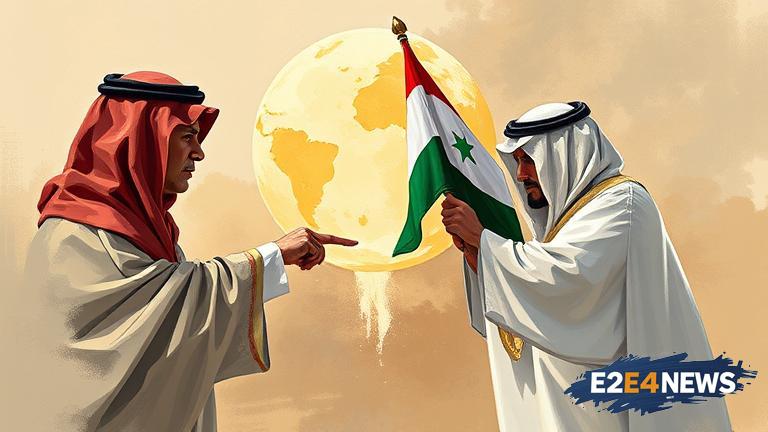In a recent statement, former Arkansas Governor Mike Huckabee observed that Arab states are adopting a more stringent approach towards Hamas, a Palestinian Islamist organization, compared to their European counterparts. This development marks a notable shift in the way different regions are addressing the complexities of the Middle East. Huckabee’s comments come at a time when international relations and geopolitical strategies are under intense scrutiny. The Arab world’s stance on Hamas is multifaceted, reflecting both historical and contemporary factors that influence their policies. Historically, the Arab-Israeli conflict has been a central issue in Middle Eastern politics, with various Arab states having different levels of engagement with Palestinian groups. However, the current toughening of attitudes towards Hamas signifies a broader realignment of interests and priorities among Arab nations. This realignment is partly driven by the shared concern over extremist ideologies and the destabilizing effects of terrorism in the region. Unlike some European countries, which have been criticized for their more lenient or ambiguous stance towards Hamas, Arab states are now more vocally condemning the group’s actions. The European approach has been shaped by a mix of humanitarian concerns, political ideologies, and strategic interests, sometimes leading to divergent views on how to address the Israeli-Palestinian conflict. In contrast, Arab states, having experienced firsthand the consequences of extremism and terrorism, are taking a firmer stance against groups like Hamas. This does not mean that Arab states are uniformly supportive of Israel or that they have abandoned the Palestinian cause. Rather, it reflects a nuanced understanding of the complexities involved and a desire to address the root causes of instability in the region. The shift in Arab states’ policies towards Hamas also underscores the evolving nature of alliances and rivalries in the Middle East. Countries like Saudi Arabia, the United Arab Emirates, and Egypt have been at the forefront of this change, driven by their own security concerns and the need to combat extremist ideologies. The role of Iran, which has been a key supporter of Hamas, further complicates the regional dynamics. Arab states are increasingly wary of Iran’s influence and are seeking to counter its expansionist policies, which includes its support for militant groups like Hamas. In this context, the tougher stance on Hamas is part of a broader strategy to stabilize the region and undermine the influence of extremist forces. Despite these developments, the path forward remains challenging. The Israeli-Palestinian conflict is deeply entrenched, with decades of history and emotion invested in the competing narratives and claims. Finding a resolution that satisfies all parties and addresses the legitimate concerns of both Israelis and Palestinians will require sustained effort and diplomacy. The international community, including both Arab states and European countries, has a critical role to play in supporting peace initiatives and in encouraging constructive dialogue. Ultimately, the success of these efforts will depend on the ability of all parties to navigate the complex web of interests, ideologies, and historical grievances that define the Middle East. As the region continues to evolve, the stance of Arab states towards Hamas will be an important indicator of the shifting sands of Middle Eastern politics. It also highlights the need for a more coordinated and effective international response to the challenges posed by extremism and terrorism. By acknowledging the complexities of the issue and the diverse perspectives involved, there is an opportunity to build a more stable and peaceful future for the region. This would involve not just a tougher stance on groups like Hamas but also a commitment to addressing the underlying issues that fuel conflict and extremism. In conclusion, the observation by Mike Huckabee that Arab states are being tougher on Hamas than European countries underscores significant shifts in regional dynamics and international relations. It reflects a growing recognition of the need to combat extremism and promote stability in the Middle East, and it highlights the complex and evolving nature of alliances, rivalries, and ideologies in the region.





